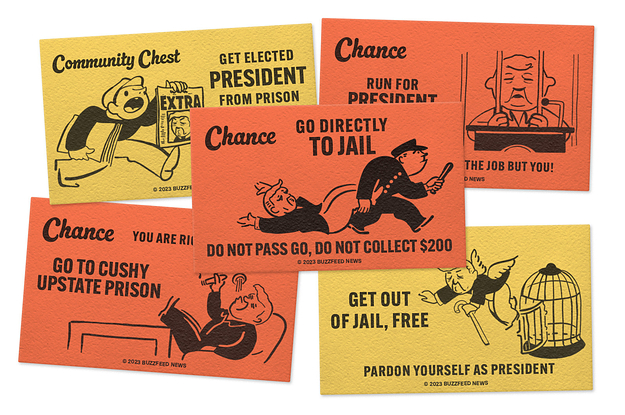If former President Donald Trump were to be convicted in the ongoing criminal investigation in New York, he would likely serve his sentence in a minimum-security prison. However, due to his prominent status, there would be concerns about his security, possibly leading to him being held in a higher-security prison. Trump would be sent to a state facility chosen by the Department of Corrections since this is a state case. It is important to note that “Club Fed” facilities, often associated with rich and famous convicts, are solely for federal crimes.
Despite being in prison, Trump would still be eligible to run for president again as long as he meets the constitutional requirements. He has expressed his intention to run for a second term, even if he were to be indicted. However, if convicted of a felony, he would likely be ineligible to vote for himself. Campaigning from prison would present logistical challenges, as he would not be able to hold rallies or personally meet with fundraisers. His ability to communicate with the outside world would be significantly restricted, and the reputational cost could impact his campaign.
In terms of timing, even if Trump were to be convicted and sentenced, it is unlikely that a trial and all the appeals would be concluded before November 2024. Therefore, it is uncertain whether he would be able to pardon himself for this case since presidential pardons can only be granted for federal crimes. The legitimacy of a self-pardon is a subject of debate among legal scholars, and there is no legal precedent for such a move. Additionally, if he were to pardon himself, he could face impeachment and removal from office for abuse of power.
Apart from the New York case, Trump is facing other legal troubles. In Georgia, a grand jury is investigating his alleged attempt to overturn the 2020 election results. This investigation is based on a phone call in which Trump pressured Georgia Secretary of State Brad Raffensperger to manipulate the state’s election results in his favor. Trump is also being investigated at the federal level for his handling of classified documents, his actions related to the January 6 insurrection, and alleged attempts to overturn the election. Thus, regardless of the outcome of the New York case, Trump remains in significant legal jeopardy.
Overall, Donald Trump potentially faces prison time if convicted in the New York case. The nature of the prison he would be sent to would depend on security considerations, and he could still run for president from prison. However, campaigning and communicating with the outside world would be severely restricted. The possibility of a self-pardon remains uncertain, and Trump is facing other legal challenges at both the state and federal levels. This moment may prove to be the most serious legal threat Trump has faced in his career.









